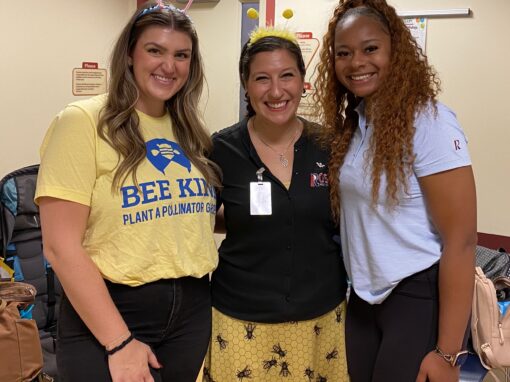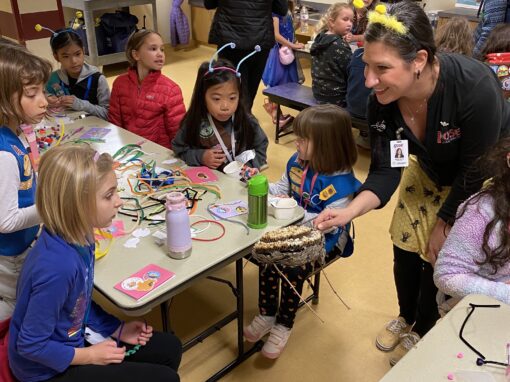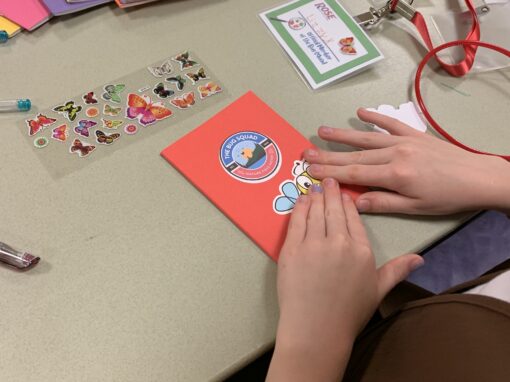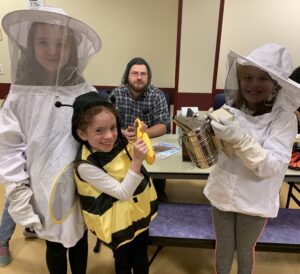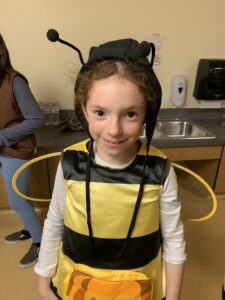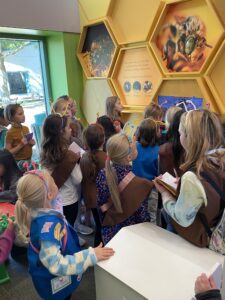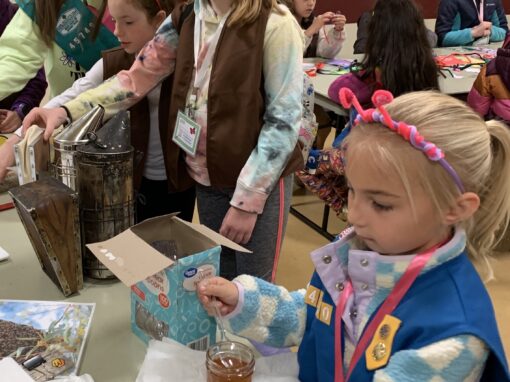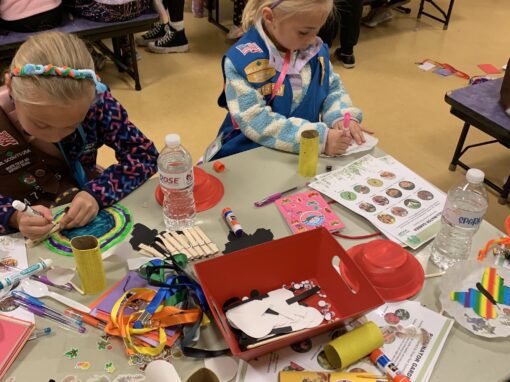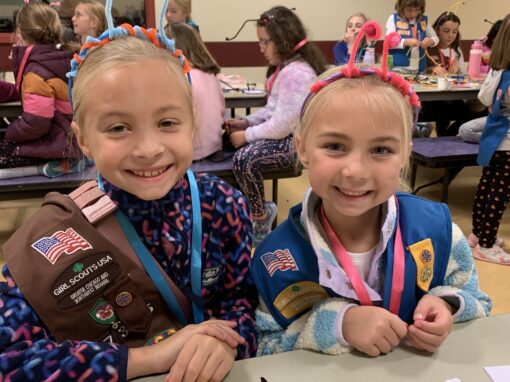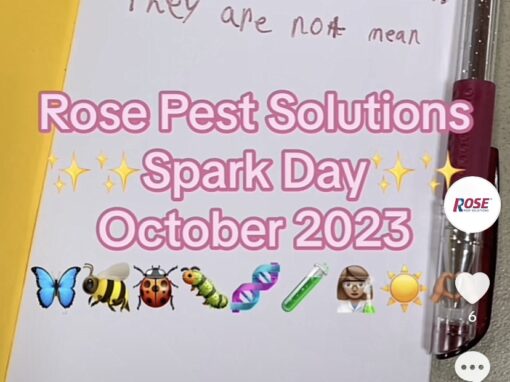Twice per year, Rose and sister brand Franklin Pest Solutions host a STEAM workshop with the Greater Chicago and Northwest Indiana Girl Scouts known as Spark Day. These workshops are designed to provide hands-on insight into different STEAM based careers. This Fall, our Spark Day focused on exploring pollinators with Girl Scouts.
Exploring Pollinators with Girl Scouts
About 40 Spark Day registrants between grades 2 and 5 signed up to bug out with the Bug Squad. Kohl Children’s Museum in Glenview, Illinois was the perfect spot for our program. It surprised us to hear that some of the scouts knew quite a bit about honey bees, the topic of pollination and admitted to being bug fans. Others were not into bugs at all, but we love how curious they were! Our itinerary for the morning included honey bee and wasp biology, meeting Willie the Beekeeper, a honey tasting, crafts and so much more.
Why should kids learn about pollinators?
Did you know that honey bees are responsible for 1 out of every 3 bites of food we eat? They’re the reason we have apples, cherries, tons of other fruits, almonds and even chocolate. They’re vital to our food sources. Teaching kids about where some of our food comes from raises an awareness early on for how important it is to promote pollinator health. Our friends at the Dunes Learning Center in Chesterton, Indiana said it best:
Kids need nature. And nature needs kids.
The environment needs younger generations to be more conscious of the effects of our human impact. It needs them to preserve what we’ve got left. And it’s scientifically proven that contact with the Earth is grounding, diffuses anxiety and is so beneficial for health. By opening kids’ minds to the little things that are often overlooked, we promote a proactive mentality.
All About Honey Bees
Spark Day began with scouts creating and decorating their official Bug Squad name tags and field note books. Janelle shared interesting biological facts about honey bees and their less-sweet counterparts, wasps. Like in any scientific process, scouts were encouraged to document their experience. Their field note books came in handy for taking notes they found interesting or drawing what they observed throughout the program.
What it takes to be a beekeeper
Our friend, Willie the Beekeeper, from Willie’s Honey Co. in McHenry joined us that morning to share stories about what it takes to keep bees. First he taught us about the different roles that bees have in a hive. Then he showed off some of the tools he uses. Willie answered a bunch of the scouts’ really great questions, too. Every person in the room (chaperones included) couldn’t believe how many times Willie said he gets stung in a day!
The scouts grasped the importance of honey bees and beekeepers so fast. Their faces lit up with newfound appreciation for these tiny, winged marvels as they learned about some of their strengths. The Bug Squad and Willie invited the scouts to dress up like bees and beekeepers and try out some of the gear. We made antennae after learning how bees communicate with one another. And then we all did the waggle dance to find the honey!
Honey Bee Hideout
In the summer of 2022, Rose Pest Solutions, together with friends at the museum and Willie, opened an exhibit called the Honey Bee Hideout. During our Spark Day program, we all went out into the exhibit to take a deeper dive into pollination, how it happens and why it’s important.
From April through September, Willie has a live beehive on museum grounds that can be observed safely from a distance. The closed circuit cameras on the inside of the exhibit allow viewers to get up close into the inner workings of the hive.
Nature’s Liquid Gold
Because a honey bee-focused workshop wouldn’t be complete without a honey tasting, Willie invited everyone to taste the fruits of his hard-working bees’ labor. But before dipping our spoons right in, we discussed how beneficial honey is to our health. And we chatted about how we can all help save the bees and promote pollinator health.
One of the easiest ways to do that is by supporting local beekeepers and buying their honey. Also, planting native pollinator flowers in your garden can make a big impact on promoting pollinators. Using flower and pollinator identification sheets, we discussed what makes a garden attractive to pollinators. Meanwhile, the scouts were quizzed on their knowledge of daytime and nighttime pollinators. And all attendees went home with goody bags that included native seed packs for their own gardens.
The scouts tasted some freshly harvested honey, straight from the hive. The expressions on their faces spoke volumes now that they knew what it took to make that liquid gold. With sticky fingers and happy hearts, they moved on to the next exciting part of the day.
Creativity Unleashed with Insect-Themed Crafts
Girl Scouts know crafts. There were tons of art supplies to encourage their artistic imaginations to take flight with their newfound knowledge. So, naturally, they created butterflies, colored beetles and flowers, crafted their own buzzing bees, and donned so many varieties of antennae.
Encouraging Leaders
Spark Day was a fantastic journey of exploring pollinators with Girl Scouts. As we wrapped up our day, these young minds were buzzing with knowledge and ready to make a change. Our scouts left with a newfound appreciation for the essential role honeybees play in our lives and a greater understanding of the delicate balance of nature. Even their parents couldn’t believe how excited they were to share with they learned as they came to pick them up!
We’re so proud of all of our new Bug Squad friends!!!
Check out our Tik Tok Recap!

